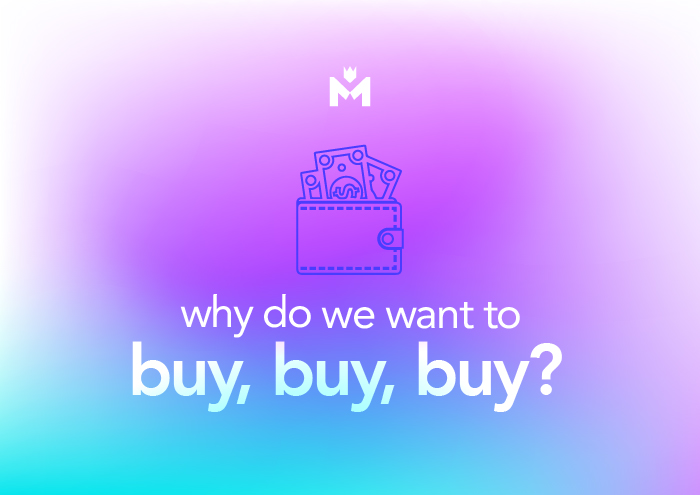Our team at the Beyond the Field podcast have just chatted about Black Friday Sales, why they are the way they are, and how to avoid it. We thought we’d back it up and give our 2cents worth on a post.
Why did Black Friday begin?
Black Friday Sales originally started in America in the late 1980s, where marketing teams and retailers turned the day after Thanksgiving into a retail bonanza. It is now known as a day where consumers can save a heap of money on a wide range of items, from household appliances, clothing, and even gifts. Black Friday Sales are a great time of year to splurge on Holiday gifts for the friends and family, and get everything together before Christmas.
Great, but why do I want to buy so many items!
There are a few reasons it’s easy enough for retailers to capitalise on unsuspecting consumers. Starting with the crowds.
The more similar you are to the people in the crowd, the more likely you will want to do what you can to fit in. Think about going to an All Blacks game, and hearing the loud cheering and frivolity that goes on when we win! When in this state of mind, you’re also more likely to follow through with ‘social learning’, a term coined by psychologists for people picking up on the social norms of the crowd they’re part of. As we have seen videos from America of aggression, chaos, and even violence, we consider that behaviour normal and acceptable for Black Friday Sales.
The next reason is The Shopping Rush.
Think of something you have done on impulse that made you feel good almost immediately, giving the instant gratification. It’s not just this, but also the recognition of a discount, the urgency behind the purchase, the popularity of the item, and exclusivity of the item or the sale. These four main components drive us to want to buy and spend up!
Consumers are excited by seeing a massive price reduction, often without taking into account the new value for money behind the price. It would help if you started watching the prices a few weeks out on a particular item you’re looking for, making sure a retailer doesn’t hike the price up, and slap a 10% discount on.
If there is urgency, you are more likely to grab it and go before it runs out. This is a fundamental basis of being a human! Companies and retailers can also add in limitations that don’t actually exist; for example, there’s only one item in that size left of a shirt that has taken your eye. In general, people don’t like parting with their money unless they see something of value. To overcome this loss aversion mentality, the urgency factor has been added.
As humans are inherently social beings, popularity is a huge driver, as people want to belong. This is where our drive for FOMO comes in, we don’t want to miss out! Every day we are faced with multiple complex and straight forward decisions, resulting in us using mental shortcuts. One of those mental shortcuts is “If everyone likes it, it must be good!”. In quick decision making moments, we often lack time to do research and gain further information, so we trust our fellow shopper to make part of the decision for us.
In the opposite of popularity, exclusivity is another driver. We don’t want exactly what everyone else has as it reduces our sense of individuality. If it’s not available to everyone, it makes it better by raising its value and adding attractivity. Exclusivity is a similar driver to urgency, using a marketing ploy such as 50% off for the first 100 buyers.
How have Black Friday Sales impacted New Zealand?
Black Friday Sales over the last two years have been more significant than the Boxing Day Sales. Last year, Kiwi shoppers spent $253m at the Black Friday Sales, compared to the $149.8m spent on Boxing Day last year.
With New Zealanders spending more online this year than any other year so far, there is the expectation that Black Friday will be even bigger and better. The main issue this year is ordering international stock. With delays in production, handling, customs, and even shipping. 2020 has been challenging for retailers, so shoppers will expect to see some sweet deals to help boost the bottom line, and get rid of stock.
How do I avoid the Black Friday Sale rush?
Follow our top tips to avoid the Black Friday Sale FOMO.
- Our advisers Goran Loncar and Isa Nacewa says to get out of dodge! Get out of the city, and escape to a place where the sales can’t tempt you.
- Create a list of what you exactly need, for who, and don’t get tempted by the other sales. Momentum shopping is huge, and something small for $20 may add up, as you continue to buy other items worth $20 too.
- On top of this, create a budget and stick to it. If you can’t get what you need within the budget, see what you need to do to make everything fit. That way, you don’t go overboard and overspend.
- Bring someone with you. This person should ideally be willing to face the crowds with you, and this will hold you accountable to your list and budget.
We hope explaining everything behind Black Friday Sales, and how to avoid these from impacting you and your budget, will help you this Friday! If you are planning on braving the madness from your desk, couch, or the stores themselves, let us know how you got on.




